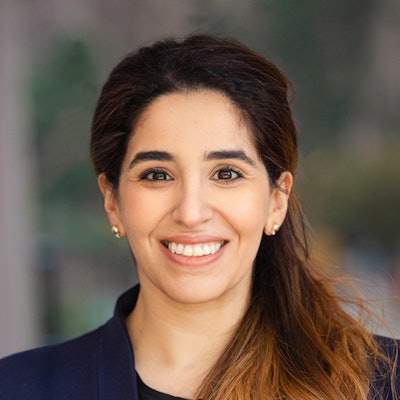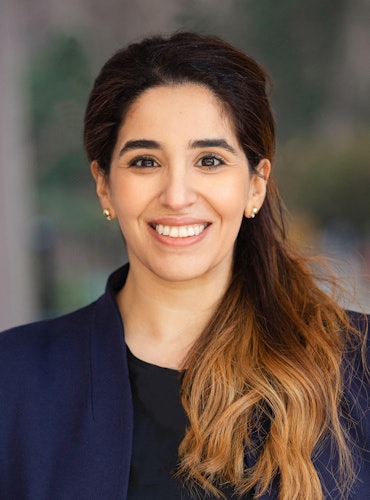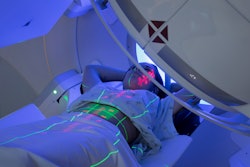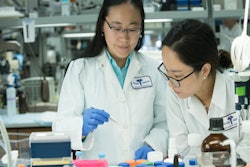
Many patients diagnosed with cancer put other health concerns, including dental problems, on the back burner, which could delay treatment and recovery. That's why a clinical instructor from New York University (NYU) says dentists should be part of a patient's cancer team.
Dr. Dalal Alhajji, MSD, a clinical instructor in the department of oral and maxillofacial pathology, radiology, and medicine at the NYU College of Dentistry, who works with cancer patients, told DrBicuspid.com that dentists can counsel patients who experience unique issues related to oral health or who want to minimize side effects.
 Dr. Dalal Alhajji, MSD
Dr. Dalal Alhajji, MSD"It's so important for dentists to talk to patients, because they are so concerned about putting out the cancer fire that they don't realize that they will be putting out another fire if they don't see a dentist," Alhajji, who completed a fellowship in dental oncology and who now specializes in treating cancer patients, said.
NYU's dentists increasingly are being considered integral members of cancer teams, which until recently only included oncologists, nurses, surgeons, radiologists, pathologists, and social workers. Over the past few years, the school has been working with cancer providers at NYU Langone's Perlmutter Cancer Center, particularly those treating patients with head and neck cancers and diseases requiring bone marrow transplants.
A growing number of patients with certain cancers are referred to the school for an exam before starting treatment. They're seen at the NYU Dentistry Oral Health Center for People with Disabilities, where Alhajji oversees their care and dental students get opportunities to work with cancer patients.
Treatment takes a toll
Radiation therapy and chemotherapy can change a person's oral health. These therapies can cause alterations to the mouth's lining and salivary glands, negatively affecting saliva production and disrupting healthy oral bacteria. These changes can result in tooth decay, dry mouth, infections, and mouth sores.
"We can help minimize side effects, which can help increase their abilities to eat, talk, and live life," she said. "(You can) underestimate the impacts until it happens."
Additionally, dentists can help minimize common side effects that cancer patients experience. As part of the team, dentists can talk to patients about how it is necessary to get exams, x-rays, and cleanings before cancer treatment. The visits allow clinicians to look for infections or other problems that could complicate cancer care and lower a person's immune system.
For patients receiving radiation, dentists can recommend custom mouthguards to wear during these treatments. Mouthguards help protect patients' mouths from unnecessary radiation.
Interestingly, Alhajji said her work with cancer patients bloomed during COVID-19, when mouthguards were in short supply.
"I first spoke to an oncologist during COVID-19 who said they couldn't get mouthguards for head and neck cancer radiation patients," she said. "We were able to help make the guards, and we discussed other ways dentists can help."
Additionally, dentists can be especially important for patients whose cancer has spread to their bones or who are undergoing treatment that can weaken their bones. These patients may be prescribed high doses of antiresorptive medications, which can cause osteonecrosis of the jaw.
"Patients conquer cancer and then have to deal with a broken jawbone," she said. "I've seen it happen. It's better to intervene before you are there."
In it together
Though a multidisciplinary team can help cancer patients have the best possible outcomes, Alhajji acknowledges that it's not always easy to connect with other healthcare professionals.
"Approaching an oncologist at a cancer center, not a lot of dentists feel comfortable," she said. "We're not always integrated, and it's an obvious problem. But we can give presentations and lay down the facts because dentists have a place here."



















